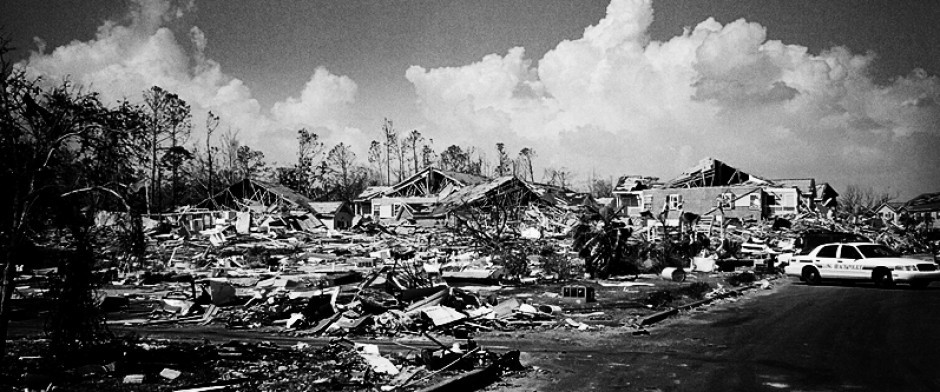I routinely read articles online where individuals pontificate about where the best places for preppers to live or relocate too are. What I don’t usually see is any real cognitive effort to do a realistic analysis and assessment. This should be a red flag. Selecting your relocation site is one of the most important decisions a prepper must make. It is too important to be made on hearsay and opinions. Therefore, I am going to question that contemporary prepper relocation logic. I am going to debunk common myths and offer better alternatives that will help you develop a personalized answer to what truly is you “best prepper place to relocate.” When this series is complete, you will be armed with critical information necessary for identifying your ideal relocation spot. Don’t be surprised if after this eye opening series your philosophy on how you previously evaluated and envisioned your relocation site looks completely different.
Most preparedness “experts” would define the common prepper relocation logic is to find a place as far as possible from other people in an area still suitable for an off-grid, self-sustaining lifestyle. This implies the location has ample water, good soil, and a good growing season. Add a couple wild card factors like being outside the blast radius and fallout pattern of a nuclear detonation and avoiding known earthquake prone areas and most preppers conclude that Idaho is the choice destination. James Wesley Rawles, a man well known and respected throughout the prepper community and a recognized expert on the field is a big advocate of this relocation option. In Rawles’ defense, Idaho may indeed be a good location for some preppers for some reasons. However, Rawles and many others are basing many of their primary assumptions on outdated information, obsolete tactics and techniques, and generally old school logic that when tested in real world scenarios, fails. I don’t take this indictment lightly. If we get this wrong, we die and that is why it is so important we first question some of the fundamental assumptions the conventional prepper relocation plan is based upon.
You must first identify what you are prepping for to begin the site selection process. Every “prepper” has their own opinion on what an ideal bugout location should be like and that is perfectly fine. I also agree that wherever you are located, you should try to be as self-sufficient as possible. Nevertheless, no two people have the exact same set of life factors and personal circumstances to deal with so everyone must design their plans to fit their unique needs. However, if you are “prepping,” you should have some idea what contingency or crises you intend to mitigate. To say you want to be prepared for anything is nice, but in truth it isn’t the most realistic goal. Traditional preps are very good for dealing with limited or short term catastrophes, but if you are prepping for a major long term collapse or wide spread disaster, you need to get serious about your planning. Anyone that is more or less self-sufficient will be far more resilient and better off during a crisis, but that does not equate to survival over the long term. To be more specific, even simple well-tailored preparedness plans often fail miserably due to group think and false assumptions. Therefore, you really need to identify what catastrophe you are prepping for and what your idea of “survival” really means.
To illustrate the fact people often fail to adequately prepare for even a single specific event, let’s look at a basic prepper scenario for surviving a nuclear war. If you are prepping to survive a full scale nuclear war, most self-proclaimed “experts” recommend relocating to Idaho. This is perfectly fine if you are preparing for a small, isolated, nuclear event in a major city. However, a realistic and unbiased assessment would conclude you are nuts and poorly prepared to survive a full scale nuclear war scenario whether in Idaho or not. Modern nuclear weapons launched from space platforms and undersea delivery vehicles like attack subs provide almost no warning or reaction time. Further, our primary nation state threats have enough warheads now to not only destroy all of our major cities multiple times over, but also plenty of extras to eliminate all of our small and medium sized cities. Idaho was only a viable option if one relied on the assumptions made 30 years ago based on maps developed by the US military on guesses of how they believed a Soviet nuclear strike would unfold. To say these targeting assumptions and estimated fall out zones were imprecise would be an understatement. These Cold War estimates are outdated and not accurate. Nor have they been updated for the wide range of contingencies such as a joint Chinese-Russian-North Korean attack, bombers that drop their payload prematurely, or errant missile strikes. They do not take into account the pinpoint accuracy of modern missiles, missile warheads carrying large numbers of independently targeted reentry vehicles, cruise missiles, improved blast yields, the number of hostile nations possessing viable nuclear threats, or the total number of weapons now available. The entire war could be over in minutes. Think about this for a second. Before you finished your commute home, a short run, or TV sitcom, our entire nation could be obliterated. The bottom line is if Doomsday occurs, you aren’t escaping the blasts and fallout if you are in the US.
Let’s take this one step further because right now there are many of you thinking I am stupid because you will just button up in your underground bunker and survive. Okay, so even if we assume you were lucky enough to be living in your remote underground bunker at the precise time of the attack, what kind of existence is it living in an underground box for years? What does “survival” look like once you surface to a radioactive wasteland? Further, this plan, when evaluated for critical failure points and their likelihood of occurring, is very high risk. Stated differently, what are the odds something doesn’t go wrong? Air filtration systems failing, running out of fuel, disease, injuries, attacks, and a host of other contingencies are all not just possible, but very likely. Also one must consider how much money it costs to develop a truly functional nuclear blast shelter that could weather doomsday and sustain you till radiation levels dropped to survivable levels? Shelters may make good sense for short term plans, but lose significant value if relied upon over the long term. When compared to what you pay, what you are getting is really not that desirable. I argue that in this case, the run and hide in Idaho strategy is completely flawed. There are far smarter options than pretending you are a groundhog for a year that really do offer good chances of survival and quality living.
As you read on throughout this series, what you will see is that what Rawles and others are preaching is quite dangerous and inaccurate for many scenarios people are actually prepping for. In the event of a full nuclear war today, you would realistically need to vacate the entire Northern Hemisphere long before the attack ever began if you want to survive it. The radiation would blanket everything from Alaska to Miami. I understand we love our country and we intuitively want to literally dig in and defend our homeland, but ask yourself a few questions. If you really believe our country is going to be nuked, what will be left that is worth inhabiting assuming you survive? If you and your family are incinerated in the blast, how did that help defend the US? How is it that if you believe a nuclear war is coming that you think keeping your family here is a good plan? How well could you really resist and fight back against an invasion if you are preoccupied with not dying from radiation poisoning or starvation? Instead of spending tens if not hundreds of thousands of dollars on elaborate preps, would it not make more sense to use that money on a real plan? The lesson here is not to artificially limit your search area for a proper relocation site. You must open your mind to relocation possibilities far beyond just the borders of the US.
Consider this alternative for a moment. Instead of wasting the money buying a bunker you may never use or die in, use that money to establish a second residency in a country in South America. You would be so far from the blasts and fallout you wouldn’t need a bunker. Having that second residence would allow you to offshore a portion of your money and other assets. This would insulate you from much of the economic chaos and capital losses that would wreck the US even if it did survive a nuclear war. Using that money, you could actually live quite well and be very prosperous for far less than the cost of building a fortified nuclear shelter in Idaho. The logic behind this strategy is simple and sound. You survive a nuclear war by not being in the middle of one. You don’t roll the dice and suffer, you avoid it entirely. This strategy is very similar to the logic that the best way to survive getting shot is to not get shot or to survive a car accident by not being in the car when it wrecks. No one is threatening Uruguay with nuclear annihilation right now. In fact, no one is threatening any country in Central or South America with a nuclear war right now. Further, if you are like most people, you don’t live in Idaho and would have to travel hundreds if not thousands of miles to get there. In the event of an impending crisis, the only way you would get there with any real reliable hope would be to fly. If you are going to need to fly to get there, why not fly to a place that offers real sanctuary? Why suffer when you can not only live, but live very well? Drop the dated prepper group think and open your mind to a better set of survival options.
I hope after reading this short article you have already started to reevaluate your preps. Over the course of my upcoming posts, I am going to challenge conventional prepper thinking repeatedly. These articles, like my previous articles detailing the need for preppers to organize and live in groups vice isolated and independent of people (see: http://www.lastminutesurvival.com/2013/12/02/overcoming-the-greatest-prepper-weakness-the-individual-versus-the-community-and-a-plan-for-the-future/) will continue to rewrite how we effectively prepare. I invite each and every one of you to not only read, but discuss, debate, post, blog, and vet my points. We need fresh thinking. At the end of the series, you will all be better prepared to answer for yourself where the best relocation site is.
By Guiles Hendrik
September 1, 2016
More reading: http://www.washingtonpost.com/sf/national/wp/2016/08/27/2016/08/27/a-fortress-against-fear/



[…] (Read More) […]
Everyone speaks to the issue of radioactive fallout from a nuclear bomb. What is not mentioned is how an EMP attack could produce a similar effect, without the total devastation. Suppose an EMP attack occurs…online nuclear power plants will not be able to shut down. The operators will not be able to retract the fuel rods into stable positions cutting off the reaction. This is because the circulation pumps will not work; valves will not open or close, and it will be impossible to hand crank any rods down in sequence and fast enough to stop the radioactive chain reaction. It will be virtually impossible to relocate fast enough to a distant area for actual safety. Depending upon the time of year and the weather patterns and prevailing winds at that time, the spread of the radioactivity will become a very real threat. And we are talking about millions of people exposed to radiation having a slowly debilitating effect on the body not just the quick deaths of extreme initial exposure. There will be no way to get proper medical treatments.
Most preppers are not rich enough to move to another country even if they wanted to, which I, personally, do not want to do. We are looking for real, achievable goals, ones that we can afford and still give us a fighting chance to make our lives possible after a calamity. Nuclear warfare is not one of my scenarios since I wouldn’t want to either see people suffering the after effects nor do I wish to do so myself. Civil unrest, economical collapse, terrorism (radical Islamic or otherwise) top my list.
I am of the belief that each person needs to do whatever he/she is able to provide for the self and their family and not rely on any government programs. Being one of the Sheeple is not for me!
Look forward to your articles and the discussions they will bring.
You have no idea about nuclear weapons and how fallout works, do you?
Did you get all your info from watching “On the Beach”?
Try Nuclear Survival Skills and Ki4u.com and learn something.
Just a thought. Hiroshima and Nagasaki are now thriving cities. Recovery after a nuclear attack is not impossible only difficult…extremely difficult. Only the resourceful need apply. If your idea of grabbing a bite to eat is popping something in the microwave while you pick a good movie you may not make it.
Disagree. Why start living in a third world now?
Having traveled and lived in other parts of the world, in several capacities, I’ve seen numerous issues that you failed to ID. Third world – extreme corrupt politicians (South America), drug cartel communities (Central and South America), Exotic diseases (Southern Hemisphere [Aids, Ebola, Zika, and others]), Religious conflicts (North Africa and Southwest Asia [Jews vs Muslims, Sunni vs Shia vs Kurds]) and other “tribal” disagreements we do not understand. Due process is already defined as who has the most weapons. There is just about no “good” in these venues…just the biggest bullies.
Whether nuclear threat or social unrest impacting the US (which I believe our government, the Russians, the Chinese and others are preparing for), the real threat is that this country is going to “feed on itself”. I believe the two, three front war is off the books. Social unrest is the threat: the corporations and government (to include the Republican side) cannot satisfy anyone and only serve themselves. It would be stupid for the Russians or Chinese to attack. Why paint a target on themselves when two other radical countries will take up that role…and, when Americans will do it to ourselves?
Anyway, I liked what Rawles put out. He gets credit for identifying significant issues, capturing those issues and briefing solutions. Although Rawles was an intelligence officer and puts down Rangers, I valued what he wrote. The author of “One Second After” also gets credit for surfacing challenging circumstances and providing resolutions.
Going to a foreign country is not too bright. Americans would assume all the US advantages (just basic food items for openers, medical support, sense of community, goodness really matters, etc…) would be their starting point. The starting point would just about be the “stone age”. Their “new, safe life” would have more threats to living than imaginable to them. If the rest of the world is so great, and would provide an acceptable prep location, why haven’t all preppers who could afford it and all veterans migrate south? Because, those venues are flat bad and are not conducive to raising a family.
The ‘gold” in prepping here is that it is a “like type culture” and resources are available now to collect up on…this includes learning and preparing new skills.
In this country there is far more good – this includes liberals and although tough to accept, civil unrest – than the rest of the world.
Dave
I see that you may not have traveled very much .
Tasmania. First world, speak English, stable government, cleanest air imaginable, high food production, very low population density, no nuclear targets, island, great wines and food, scenic!